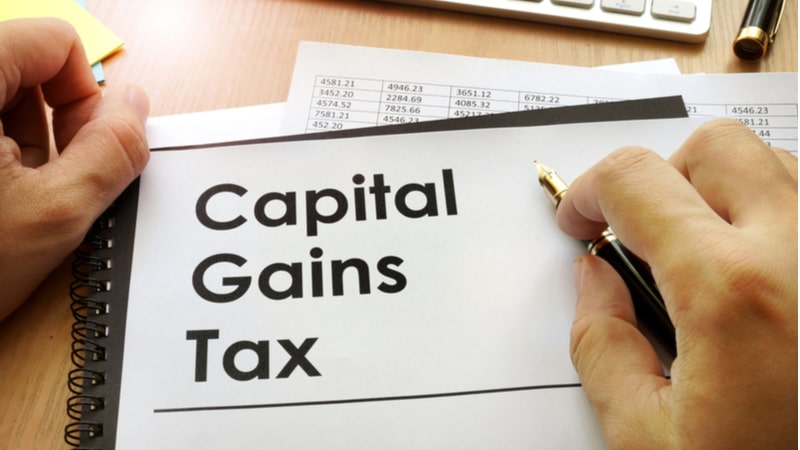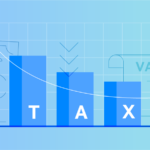Capital gains taxes can be a complex and often misunderstood aspect of the tax system. For many individuals, the words “capital gains” might bring to mind images of Wall Street traders or billionaire investors. However, understanding capital gains taxes is essential for anyone who has made a profit from selling assets such as stocks, real estate, or valuable collectibles.
In this article, we will dive into the world of capital gains taxes and demystify what they are and when they are owed. We will explore the different types of capital gains, the tax rates that apply to them, and the circumstances under which they are triggered. Whether you’re a seasoned investor or someone who has recently sold a property, this article will provide you with the knowledge you need to navigate the world of capital gains taxes effectively.
Understanding Capital Gains
When it comes to taxes, it’s crucial to have a clear understanding of the terms involved. So, what exactly are capital gains? Put simply, capital gains are the profits you make from selling an asset for more than its original purchase price. The asset can be anything from stocks and bonds to real estate, artwork, or even cryptocurrencies.
Capital gains are categorized into two types: short-term and long-term. Short-term capital gains apply to assets held for one year or less, while long-term capital gains apply to assets held for more than one year. The distinction between the two is important because they are taxed at different rates.
Short-term capital gains are taxed at your ordinary income tax rate, which can be as high as 37% for individuals in the highest tax bracket. On the other hand, long-term capital gains are subject to lower tax rates, ranging from 0% to 20%, depending on your income level. This tax advantage for long-term investments is designed to incentivize individuals to hold assets for a more extended period.
When it comes to calculating capital gains, it’s essential to consider not only the purchase price but also any expenses incurred during the acquisition and sale of the asset. These expenses, known as the cost basis, include transaction fees, commissions, and improvements made to the asset. Subtracting the cost basis from the selling price will give you the capital gains on the transaction.
Different Types of Capital Gains Taxes
Now that we understand the basics of capital gains, let’s explore the different types of capital gains taxes in more detail. In the United States, there are currently two main categories of capital gains taxes: federal and state.
- Federal Capital Gains Taxes: The federal government imposes capital gains taxes on the profits made from selling assets. As mentioned earlier, the tax rates for long-term capital gains are generally lower than those for short-term capital gains. The specific rate you’ll pay depends on your income level and filing status.
- State Capital Gains Taxes: In addition to federal taxes, some states also levy their own capital gains taxes. It’s important to note that not all states have capital gains taxes. For example, states like Florida, Texas, Nevada, and Washington do not impose any state-level capital gains taxes. However, if you reside in a state that does have capital gains taxes, you will need to factor them into your overall tax planning.
It’s worth noting that the tax laws surrounding capital gains can change over time. It’s always a good idea to consult with a tax professional or financial advisor to ensure you have the most up-to-date information and guidance.
When Are Capital Gains Taxes Owed?
Capital gains taxes are owed when you sell an asset for a profit. However, not all sales trigger capital gains taxes. To determine whether you owe taxes on a specific transaction, you need to consider the holding period, the type of asset sold, and any applicable exemptions or deductions.
- Holding Period: As mentioned earlier, the holding period plays a significant role in determining whether capital gains taxes are owed. If you sell an asset that you’ve owned for one year or less, it will be considered a short-term capital gain and subject to higher tax rates. On the other hand, if you hold the asset for more than one year, it will be classified as a long-term capital gain and eligible for lower tax rates.
- Type of Asset: Different types of assets are subject to different tax rules. While most assets are eligible for capital gains taxes, there are exceptions. For example, personal-use assets like your primary residence or personal vehicle may be exempt from capital gains taxes up to a certain threshold. Additionally, certain types of investments, such as those held in retirement accounts like 401(k)s or IRAs, may be subject to different tax treatment altogether.
- Exemptions and Deductions: There are various exemptions and deductions available that can help reduce your capital gains tax liability. For example, the IRS allows for a “step-up in basis” for inherited assets, which means the cost basis is adjusted to the fair market value at the time of inheritance. This adjustment can significantly reduce the capital gains tax owed when the inherited asset is eventually sold. Additionally, if you incur capital losses in a given year, you can use those losses to offset capital gains, potentially reducing your overall tax liability.
Navigating the intricacies of capital gains taxes requires careful consideration of these factors. It’s always recommended to consult with a tax professional or financial advisor to ensure you’re taking advantage of any available exemptions or deductions and maximizing tax efficiency.
Strategies for Minimizing Capital Gains Taxes
While paying capital gains taxes is often unavoidable, there are several strategies you can employ to minimize your tax liability. Here are a few common strategies to consider:
- Hold Assets for the Long Term: As mentioned earlier, holding assets for more than one year qualifies them for long-term capital gains treatment and lower tax rates. By adopting a long-term investment strategy, you can potentially reduce your tax liability and benefit from the tax advantages associated with long-term investments.
- Harvest Tax Losses: Tax-loss harvesting involves strategically selling investments that have declined in value to offset capital gains realized elsewhere in your portfolio. By doing this, you can minimize capital gains taxes by using capital losses to offset gains, potentially reducing your overall tax liability.
- Consider Charitable Donations: Donating appreciated assets to charity can be a tax-efficient way to reduce your capital gains tax liability. By donating these assets instead of selling them, you can avoid paying capital gains taxes on the profits while also potentially qualifying for a charitable deduction on your income tax return.
These are just a few examples of strategies that can help minimize capital gains taxes. However, it’s important to remember that tax planning should be tailored to your specific financial situation and goals. Consulting with a tax professional or financial advisor can provide valuable insights and guidance on the best strategies for your individual circumstances.
Reporting Capital Gains on Tax Returns
When it comes time to file your tax return, it’s essential to accurately report your capital gains and calculate your tax liability. The IRS requires individuals to report capital gains and losses on Schedule D of Form 1040. Depending on the complexity of your investments and the number of transactions, you may also need to include additional forms and schedules.
To report your capital gains, you’ll need to know the purchase price, sale price, and holding period for each asset sold. It’s crucial to keep accurate records of these transactions and any associated expenses to ensure you report the correct information. Failing to report capital gains accurately can result in penalties or additional taxes owed.
If you’re unsure about how to report your capital gains or have complex investment portfolios, it’s highly recommended to seek the assistance of a tax professional or accountant. They can help ensure your tax returns are filed correctly and help you take advantage of any available deductions or credits.
Common Mistakes to Avoid When Dealing with Capital Gains Taxes
Dealing with capital gains taxes can be challenging, and it’s easy to make mistakes that could lead to penalties or missed opportunities. Here are some common mistakes to avoid:
- Not Keeping Proper Records: Accurate record-keeping is essential when dealing with capital gains taxes. Failing to keep track of purchase prices, holding periods, and associated expenses can make it difficult to report your capital gains correctly. It’s crucial to maintain organized records to ensure you can accurately calculate your tax liability.
- Failing to Consider the Holding Period: The holding period is a crucial factor in determining the tax rate for your capital gains. Failing to consider the holding period could result in miscalculating your tax liability and potentially paying more in taxes than necessary. Always double-check the holding period before reporting your capital gains.
- Forgetting About State Capital Gains Taxes: While federal capital gains taxes are well-known, it’s important not to overlook state capital gains taxes. Not all states impose capital gains taxes, but if you reside in a state that does, you’ll need to factor them into your tax planning. Make sure to research and understand your state’s specific tax laws.
- Ignoring Exemptions and Deductions: Exemptions and deductions can significantly reduce your capital gains tax liability. Failing to take advantage of these opportunities could result in paying more taxes than necessary. Be sure to research and understand the available exemptions and deductions and consult with a tax professional to ensure you’re maximizing your tax efficiency.
By avoiding these common mistakes and staying informed about the tax laws and regulations surrounding capital gains, you can navigate the tax landscape more effectively and potentially reduce your tax liability.
Resources for Further Information on Capital Gains Taxes
If you’re looking to dive deeper into the world of capital gains taxes, there are several resources available to help you expand your knowledge and stay informed. Here are a few recommended resources:
- Internal Revenue Service (IRS): The IRS website is a valuable source of information on all aspects of taxation, including capital gains taxes. Their website provides detailed guides, publications, and forms related to capital gains taxes.
- Tax Professionals: Consulting with a tax professional or accountant who specializes in capital gains taxes can provide personalized advice and guidance tailored to your specific financial situation. They can help you navigate the complexities of the tax code and ensure you’re taking advantage of all available strategies to minimize your tax liability.
- Financial Publications: Financial publications such as Forbes, The Wall Street Journal, and Investopedia often publish articles and resources on capital gains taxes. These sources can help you stay up to date with the latest news, trends, and strategies related to capital gains taxes.
Remember, tax laws and regulations can change over time, so it’s essential to rely on the most up-to-date information when making financial decisions or filing your taxes.
Conclusion
Capital gains taxes are an integral part of the tax system, and understanding how they work is crucial for anyone who has made a profit from selling assets. By grasping the basics of capital gains, the different types of taxes, and the circumstances under which they are owed, you can navigate the world of capital gains taxes more effectively.
Whether you’re a seasoned investor or someone who has recently sold a property, taking the time to understand capital gains taxes can help you make informed financial decisions and ensure compliance with tax laws. By considering strategies to minimize capital gains taxes, reporting your gains accurately, and avoiding common mistakes, you can potentially reduce your tax liability and maximize your financial outcomes.
Remember, tax planning is a complex process, and it’s always recommended to seek the assistance of a qualified tax professional or financial advisor to ensure you’re taking the most advantageous approach based on your individual circumstances. With the right knowledge and guidance, you can navigate the world of capital gains taxes with confidence and make the most of your investments.


